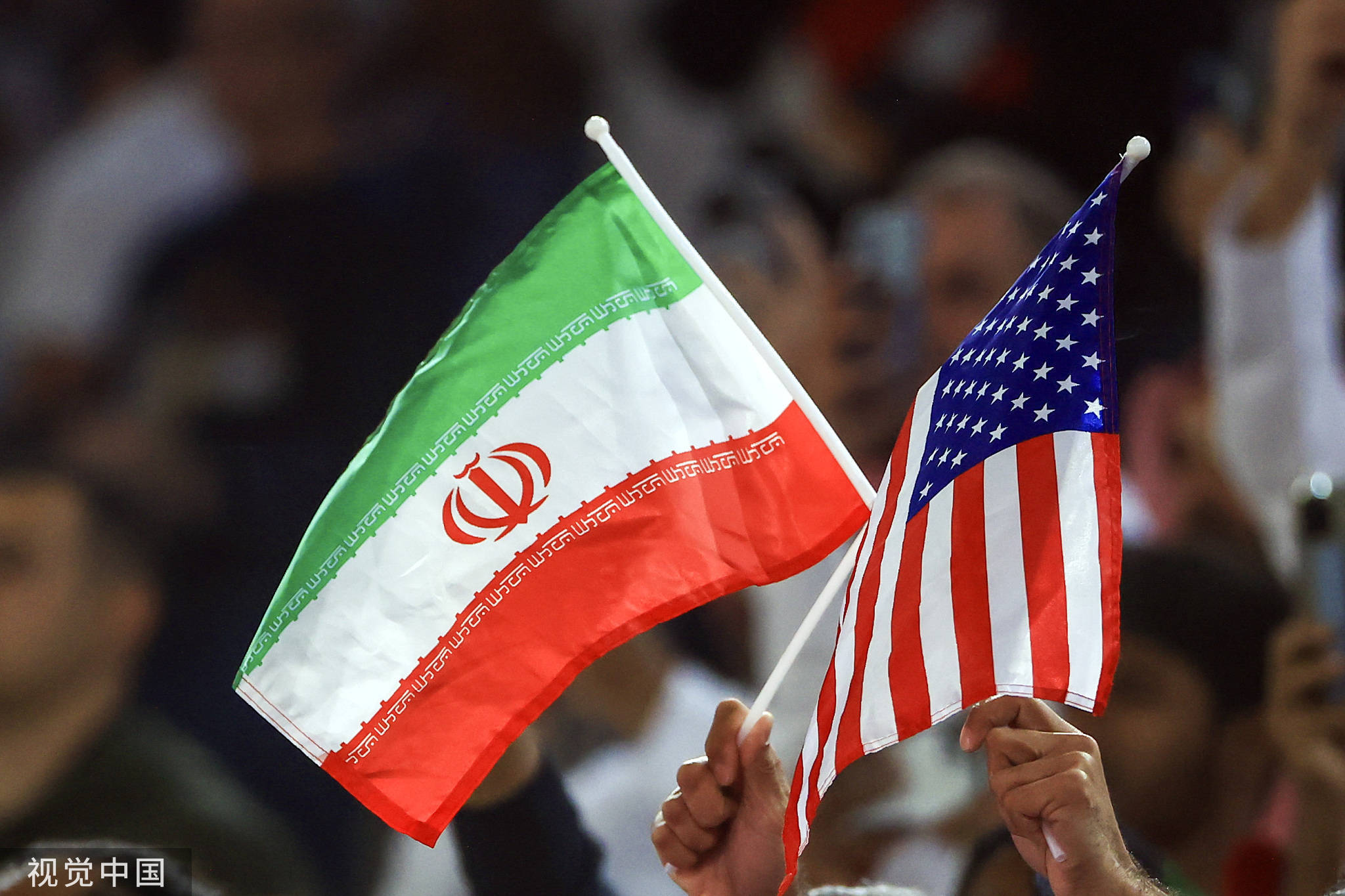President Joe Biden has further stoked U.S.-China tensions by unambiguously pledging a U.S. military response if China tries to invade Taiwan.
The U.S. military would defend Taiwan “if in fact there was an unprecedented attack” on the self-governing island, Biden said in an interview that aired Sunday on CBS’ “60 Minutes.”
Biden didn’t define what an “unprecedented” attack on Taiwan would look like, but his comments marked the fourth time since August 2021 that he has stated that the U.S. would militarily defend Taiwan in the event of a Chinese invasion attempt. And in every case, aides have walked back comments that appear to reverse the longtime policy of “strategic ambiguity” regarding U.S. willingness to defend Taiwan.
Biden’s assertion reflects his administration’s recognition that the U.S. must apply a more robust deterrence to Beijing given its worsening military intimidation of Taiwan. That harassment is rooted in China’s concerns that the island is on an irreversible course toward independence.
“I think we can all be pretty certain at this point that it was not a gaffe — four times in a row … [means] what’s happening is there are people in the administration who think that by demonstrating a greater willingness to defend Taiwan, that'll help reestablish deterrence,” said Oriana Skylar Mastro, center fellow at Stanford University’s Freeman Spogli Institute for International Studies.
Biden’s pledge of U.S. military defense of Taiwan breaks new ground in his administration’s willingness to take a more uncompromising approach to the possibility of Chinese aggression. And it reflects deepening concerns about Beijing’s intentions following the live-fire military drills it launched around the island after House Speaker Nancy Pelosi’s contentious Taiwan visit last month, as well as ongoing violations by Chinese military aircraft of the median line between Taiwan and China.
“No previous president has chosen to prejudge the decision that he will take in the event of a hypothetical Chinese military action,” Daniel Russel, former assistant secretary of State for East Asian and Pacific affairs and vice president for international security and diplomacy at the Asia Society Policy Institute, told POLITICO. “[It] doesn't really have the hallmark of an off-the-cuff remark — this was a sit-down interview in which it seemed the White House would have understood that this topic would be certainly fair game and one would have expected to prepare the president for the answer that he wanted to give.”
Face-off over Taiwan
Biden’s remarks sparked cheers in Taipei.
“[Taiwan] extends its sincere appreciation to President Biden for once again emphasizing the staunch and rock-solid US security commitment to Taiwan,” the island’s Foreign Affairs Ministry said in a statement on Monday.
But his comments infuriated Beijing.
“The U.S. remarks … severely violate the commitment the U.S. made not to support Taiwan independence,” Chinese Foreign Ministry spokesperson Mao Ning said on Monday.
The Chinese Communist Party considers “reunification with Taiwan,” a territory that the CCP has never ruled a “historical task.” It’s also key to Xi Jinping’s credibility as he seeks a third term as China’s leader next month. Liu Jieyi, director of the Chinese government’s Taiwan Affairs Office, in July described “national reunification” — Beijing’s shorthand for a Taiwan takeover — as an “inevitable requirement” of Xi’s hawkish “national rejuvenation” policy.
“We will not renounce the use of force, and we reserve the option of taking all necessary measures,” said a Chinese government white paper on Taiwan published last month.
The U.S. relationship with Taiwan is spelled out in the U.S.-China Three Communiqués, the 1979 Taiwan Relations Act and the 1982 Six Assurances. The TRA commits the U.S. “to maintain the capacity of the United States to resist any resort to force or other forms of coercion that would jeopardize the security, or the social or economic system, of the people on Taiwan.” None of those documents specifically obligate the U.S. to military intervention to protect Taiwan in the face of a Chinese invasion. But the TRA suggests an active U.S. role in maintaining the island’s status quo.
Some Republican lawmakers welcomed Biden’s comments.
“I’m glad the president has once again taken a clear position on Taiwan’s defense. … I hope this is the end of flip flopping on U.S. security interests for Taiwan,” Rep. Michael McCaul of Texas, the lead Republican on the House Foreign Affairs Committee, said in a statement.
No surprises in Beijing
White House officials rushed to defuse Beijing’s anger by insisting that Biden’s remarks were in line with U.S. commitment in the Three Communiqués.
“The president's remarks speak for themselves, [and] I do think our policy has been consistent and is unchanged and will continue,” Kurt Campbell, the U.S. National Security Council’s Indo-Pacific coordinator, said on Monday at a Carnegie Endowment for International Peace event.
That response reflects an effort by the administration to warn Beijing of the potential consequences of an attack on Taiwan while insisting that the U.S. remains committed to peace and stability across the Taiwan Strait.
“Call it a two-pronged approach in terms of the administration statements and the President's speech on this … to increase the deterrent effect on China and enable us to keep tensions at a somewhat reduced level,” Ret. Vice Adm. Robert Murrett, professor of practice at Syracuse University’s Maxwell School for professional public policy, said in an interview.
Biden’s comments will come as no surprise to the People’s Liberation Army, whose planning for possible military action against Taiwan has long factored in the likelihood of U.S. military intervention.
“The PRC is pretty well convinced that we would come to Taiwan’s aid and I think they're planning on the assumption … so I'm not sure how much [Biden’s statement] adds to deterrence,” Aaron Friedberg, former deputy assistant for national security affairs in the Office of the Vice President and professor of politics and international affairs at Princeton University, told POLITICO.
Bluster and danger
Biden’s comments have prompted calls from some China experts for the administration to rethink existing U.S. government commitments to China regarding Taiwan’s status due to Beijing’s worsening bellicosity toward the island.
“So far, everything Xi has done since 2012 is to make it even less desirable for Taiwan to be part of his grand ‘rejuvenation’ experiment,” David R. Stilwell, former assistant secretary of state for the Bureau of East Asian and Pacific Affairs, said in an interview. “The question is, why do we continue to insist on this one China policy? Why don't we update it?”
Beijing has long warned that any attempt by the U.S. to try to alter the status quo across the Taiwan Strait would reap a fierce response.
“The Taiwan question is the most important and most sensitive issue at the very heart of China-U.S. relations,” China’s Foreign Ministry said in a statement last month. The ministry has warned that any U.S. moves to change its relationship with Taiwan are “like playing with fire, are extremely dangerous.”
That may be more than bluster.
“Each action on the part of the U.S. or on the part of the president of the United States that seems to reaffirm the worst-case scenario in Beijing's eyes strengthens their hostility, their paranoia, their anger [and] reinforces their most extreme right-wing elements,” Russel said. “It works against the prospect of any kind of reconciliation or of cooperation between us, and accelerates the downward spiral of strategic rivalry.”
The Biden administration’s challenge is to balance its desire to deter a potential Chinese invasion of Taiwan with a clear understanding of its willingness to sacrifice blood and treasure to keep the island out of Beijing’s clutches.
“Most people assume the U.S. will do something to defend Taiwan. The big question is, what are the costs we're really willing to pay?” Stanford’s Skylar Mastro said. “Are we going to stick it out after 10,000 or 20,000 or 30,000 casualties? There’s nothing about Biden’s statement that adds any clarity to the Chinese on that issue.”








